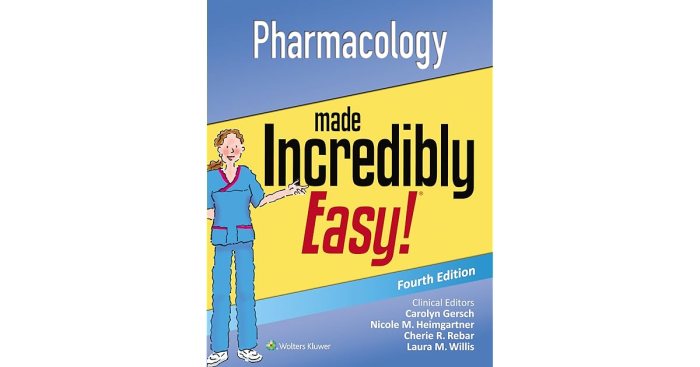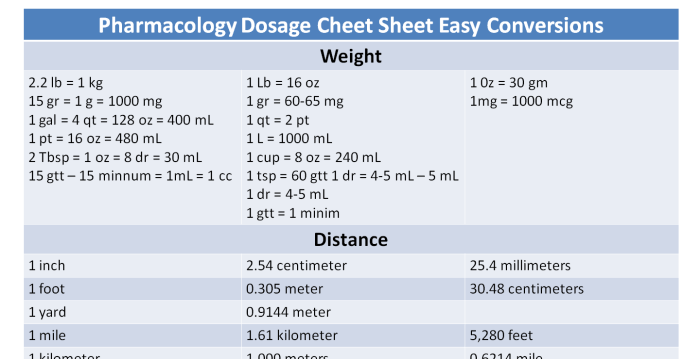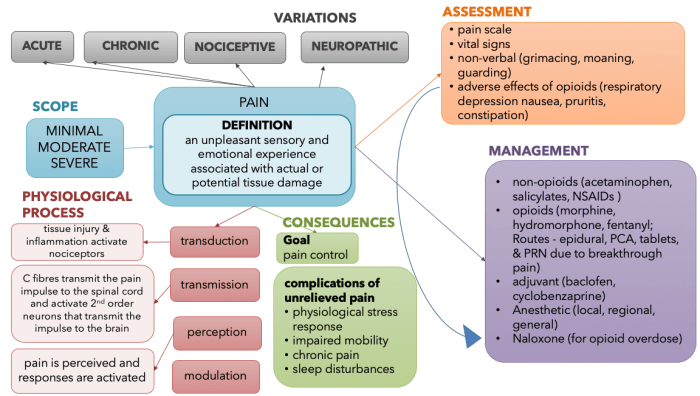Ati pharmacology made easy pain and inflammation – ATI Pharmacology Made Easy: Pain and Inflammation offers a comprehensive guide to the pharmacologic management of pain and inflammation. This engaging resource provides a clear understanding of the physiological processes involved in pain and inflammation, the different classes of medications used to manage these conditions, and the principles of effective pain and inflammation management.
Through a combination of clear explanations, case studies, and best practices, ATI Pharmacology Made Easy: Pain and Inflammation empowers healthcare professionals to optimize patient outcomes and improve quality of life for those suffering from pain and inflammation.
Definition of ATI Pharmacology
ATI Pharmacology encompasses the study of drugs and their effects on the autonomic nervous system, particularly in the context of pain and inflammation. It plays a crucial role in healthcare by providing a comprehensive understanding of how medications interact with the body to alleviate these conditions.
The scope of ATI Pharmacology extends to the development, evaluation, and utilization of medications that target the autonomic nervous system, with a specific focus on managing pain and inflammation. This field integrates principles from pharmacology, physiology, and clinical medicine to optimize patient care.
Mechanisms of Pain and Inflammation

Pain is a complex sensory experience that involves the activation of nociceptors, specialized sensory receptors that respond to harmful stimuli. When these nociceptors are stimulated, they send signals to the spinal cord and brain, where the pain is perceived.
Inflammation, on the other hand, is a protective response to injury or infection. It involves the recruitment of immune cells, increased blood flow, and the release of inflammatory mediators. These mediators, such as prostaglandins and cytokines, can cause pain, swelling, and tissue damage.
Pharmacologic Management of Pain

The pharmacologic management of pain involves the use of various classes of medications, including:
- Non-steroidal anti-inflammatory drugs (NSAIDs)
- Opioid analgesics
- Local anesthetics
- Anticonvulsants
- Antidepressants
Each class of medication has a specific mechanism of action and is indicated for different types of pain. The choice of medication depends on the severity of pain, the underlying cause, and the patient’s individual response.
Pharmacologic Management of Inflammation

The pharmacologic management of inflammation involves the use of medications that target different aspects of the inflammatory process. These medications include:
- NSAIDs
- Corticosteroids
- Disease-modifying antirheumatic drugs (DMARDs)
- Biologic response modifiers
The choice of medication depends on the type of inflammation, the severity of the condition, and the patient’s individual response.
FAQ Explained: Ati Pharmacology Made Easy Pain And Inflammation
What is the scope of ATI Pharmacology?
ATI Pharmacology focuses on the pharmacologic management of pain and inflammation in healthcare.
What are the key mechanisms involved in pain and inflammation?
Pain and inflammation involve complex physiological processes, including the release of mediators and the activation of receptors.
How are pain and inflammation managed pharmacologically?
Pharmacologic management of pain and inflammation involves the use of different classes of medications, including analgesics, anti-inflammatory drugs, and targeted therapies.